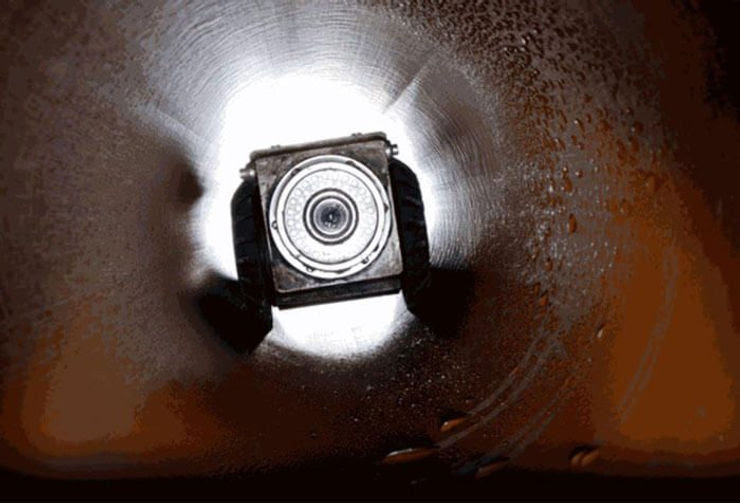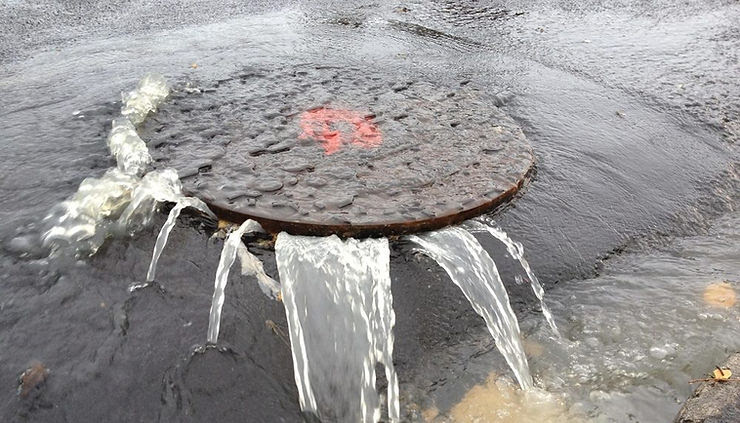How to unblock a drain within your house or commercial property.
Are you experiencing a smelly drain or a blocked drain within your home or business property?
If you’re struggling with things like smelly drains, overflowing water or your toilet wont flush, then you’re most likely needing to carry out a drain unblock.
The reason you could be experiencing these issues could be a number of reasons
- Collapses pipes due to erosion
- Tree roots breaching pipes
- Drains blocked due to a build-up of fats oils & grease
- Blocked toilet due to things like children’s toys being thrown into the water
- Collapsed internal liner
- Blocked septic tank
- Supply of drains being overrun
- A storm with a heavy downpour has compromised the drainage system
Whether you’re searching for an answer on how to unblock a toilet, unblock a sink or how you can best deal with blocked drains it can be an absolute nightmare to find the best course of action and if left unchecked, can cause devastating damage to your property.
Often a simple sign such as slow flowing water can be an early indicator that you’re experiencing a blocked drain and if treated early, can be a fairly painless problem to resolve.
In certain cases dealing with blocked drains can be fixed with relative ease, the trouble is home owners and business owners alike aren’t aware of the quick fixes available which can help break down stubborn blockages and leave your drains free flowing once more.
That’s why we’ve included a quick list of some easy home DIY solutions to help carry out a drain unblock in order to clear blockages and prevent what could be a quick 5 minute fix from escalating into something much more severe.
Boiling water
Did you know that the most common type of blockage that property owners experience within the UK are actually due to fats and oils being washed down the sink and into your drainage system? Oils and fats are more often than not a by-product of cooking and when hot are a liquid based substance which easily pours down your sink.
The trouble is when these fatty substances cool down they begin to form a solid and can start to build up within your drainage pipes and eventually cause a blockage. In rare cases, years and years of these type of liquids being poured down the sink can form a solid rock like substance called fat bergs which can completely seal your pipes and block your drains.
The easy way to fix this is to simply not pour products like these down your sink. However, if you already have and are experiencing troubles you can pour a solution of washing up liquid and boiling water down the sink to carry out a complete drainage clean.
The liquid creates a sort of lubricant to help slide the fats away whilst the boiling water helps to break down the solidification and turn the product back into a liquid which can then be washed away.
Simply boil the kettle with as much water as it will hold, then pour it slowly down the drain in a couple of stages, waiting a couple of seconds between each pour. It’s one of the fastest and easiest methods to drain unblock and the best part is, it won’t cost you a penny.
Clean the waste trap
If you take a look underneath your plug hold you’ll undoubtedly find what we call a waste trap, these are usually plastic U bend looking pipes which screw on to the bottom of the sink and connect the plug hole to the waste pipe. Over time products such as hair, food waste, oils and other substances can build up in the bottom of the U pipe and form a tiny blockage.
This is one of the easiest blockages to fix and it’s the easiest pipe to locate and access. The method for clearing this pipe is simple. Place an empty container or bucket underneath the pipe and always make sure your tap is turned off and your sink is empty (unless by this point it’s blocked completely and your sink can’t be emptied).
If the pipe is plastic then you’ll be able to unscrew the two collars underneath the plug hole and the other which attached to the waste pipe, if your drainage pipes are metal you may need to utilise a wrench.
Once the collars are unscrewed simply remove the pipe, it may need a slight wiggle to free it if the pipe is heavily blocked. If there’s water in the sink you’ll now appreciate why you’ve placed a bucket or container underneath the pipe!
Once you have the pipe free, use your fingers or a small brush to flush through any waste build up and give the pipe a thorough clean before re attaching it. If you’ve found a large amount of waste build up in the pipe you can be sure this will fix your issue, if not, the drain blockage will be further down the pipe somewhere.
If this is the case you may need a CCTV survey to locate and identify the blockage. Smart Drain UK provides CCTV surveys, and our engineers can locate and identify drainage issues with ease. If you think you may need one, contact us today to find out how we can help.
Baking Soda and Vinegar
Baking Soda and Vinegar are two of the most effective natural, home-remedy cleaners that you can use all around your home. We suggest that you mix 1/3 of a cup of baking soda with 1/3 of a cup of vinegar to create your drain unblocking remedy. Be careful when mixing as the two substances will react. Make sure you have appropriate PPE on, such as a long-sleeve top, a mask, and eye protection, to avoid any of the substance coming into contact with you. When mixing the two ingredients, they should start to fizz straight away, so you should waste no time pouring the concoction straight down your sink. Let it sit for an hour or even overnight for the best effect. Finally, flush it all through with some hot water.
One of the oldest home unblock methods is to utilise two common household products: baking soda and vinegar. The method is to mix one-third baking soda to one-third vinegar in a cup. The two ingredients will form a chemical reaction, and you’ll see the mixed solution start to fizz almost like an acid.
As soon as the product has been mixed, pour it down your sink hole and into your drainage pipe. Don’t add any water to this mix as it’ll dilute the solution. Simply pour it away and let the solution work its magic. If you’ve ever wanted a simple method to unblock a drain, this is a really effective solution that works to attack the buildup that’s creating the blockage within the drain and to break it down.
Let the solution sit for an hour or two, and flush it away with boiling water. You may need to fill the kettle up twice for this. If you’ve found the water flow has improved but still doesn’t seem perfect, repeat the process again.
Use a plunger to clear your drain
We’ve all heard of these nifty little tools, but the question we often get asked when it comes to unblocking a drain is, how do plungers work?
Plungers work by creating a seal around the pipe and utilising suction and compression to free a blocked drain. When you push a plunger down onto a pipe, it forces water down, encouraging the blockage to move further into the pipe. When you pull the plunger up, it forces water back up the pipe and around the blockage.
By repeating this process, you’re encouraging the blockage within the pipe to loosen and, with a little bit of luck, eventually break free. This is one of the oldest and simplest methods available for unblocking a drain.
It can take a while for a plunger to work, and it may take several attempts, but with patience, you may find this to be one of the most effective solutions for unblocking drains.
Chemical Cleaners
Think of the vinegar and baking soda method, but with more power and added chemicals specifically designed to break down blockages.
Chemical cleaners can be purchased from most DIY stores such as Screwfix, Homebase, and Wickes. The method is simple: purchase a chemical drain-unblocking agent, follow the instructions on the packaging, pour it down your drain, and leave it to sit for a few hours. The solution will work to break down the blockage.
Like the homemade baking soda and vinegar solution, pour hot water down the drain after letting it sit for a few hours to wash the substance away.
Biological Cleaners
If you don’t like the idea of pouring a chemical solution down your drain and letting it sit for a few hours, an alternative is to use a biological cleaner.
Biological cleaners work by using enzymes that eat their way through stubborn blockages within your drain. They are more environmentally friendly but aren’t as strong, so they may lack the power of chemical agents.
These cleaners are less effective on fatty substances like oil, but for blockages caused by hair or food waste, they can be fairly effective. However, they are not as commonly used as chemical cleaners.
Rod It
How do you use drain rods to unblock drains? This is a common question, and as with most tasks, there isn’t just one way to do it. The best techniques often come through experience, which our drainage engineers have in abundance.
Rodding involves connecting multiple lengths of fibreglass poles to create one long rod. This can then be used to push through a drainage pipe and into a blockage to help clear it.
Rodding – Proceed with Caution
The drain rod is forced into the blockage repeatedly until it begins to break down. This method is highly effective for clearing stubborn blockages but should be approached with extreme caution.
Improper use of this technique can lead to further damage to your drain pipes, and there is also a risk of the rods snapping off underground. If the broken rods are not recovered, they can create a new blockage that is incredibly difficult to clear.
We recommend attempting this method only if you have experience with rodding drains and feel confident in your abilities. If you’re unsure or lack access to a drain rodding system, our engineers are fully equipped and ready to help.
Call Us Today
If you’ve tried any of the methods above but are still struggling with a blocked drain—or if you don’t feel comfortable or have the time to perform the work yourself—contact the team at Smart Drain UK. One of our experienced, professional drainage engineers will be happy to assist you.
We use state-of-the-art equipment, so whether your drains are blocked by tree roots or a stubborn obstruction, our rotary cutting tools and high-pressure drain jetting lance can clear the blockage and restore free-flowing pipes.
Our engineers are trained to the latest industry standards and hold certifications from accredited industry providers. Contact us today or give us a call on 01788 524353 or 07747232242 to find out how we can help.









